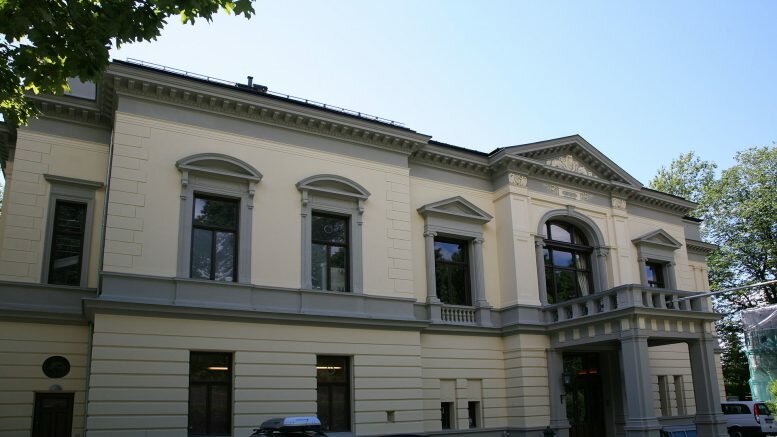The Norwegian Academy of Science and Letters
Have you ever heard about the Norwegian Academy of Science and Letters? In this article, I want to introduce the history of this academy and its highly regarded awards. There is a lot of information in this article that you may be interested in learning, so please stay with me throughout.
The Norwegian Academy of Science and Letters was founded in 1760.
This academy is a national institution that encompasses all disciplines. Its main objective is to support the advancement of science in Norway.
The members are both from Norway and abroad, including honorary. A member’s seat will be vacated if the member dies or reaches the age of seventy.
Only members of the Academy are allowed to nominate candidates for membership. Membership is based on scientific achievements.
The field of interest of the members is divided into two parts: “Mathematics and Natural Sciences” and “Humanities and Social Sciences”. Each of these is further divided into eight scientific areas. The statutes of the academy state as follows:
“
The implementation and support of research, holding international conferences, publication of scientific works and appointment of representatives for national and international institutions
Each year the academy regularly holds twelve conferences whose titles are related to various academic disciplines. Admission for the public is free at these conferences.
Since 1985, the Academy collaborates with the oil company Statoil (Equinor), which covers fundamental research related to crude oil.
Members of the Academy
The Norwegian Academy of Science and Letters has 250 seats for Norwegian, and 160 seats for foreign members. For members who reach the age of seventy, all rights are reserved and they remain as full members.
The Department of Mathematics and Natural Sciences of the Academy includes Mathematical studies, Astronomy, Physics and Geophysics, Geophysical Studies, Chemistry, Biology, Cellular, and Molecular Biology, Medical Science and Technology Studies.
The Department of Human and Social Sciences of the Academy includes History, Culture and Cognitive Arts Studies, History of Ideas, Comparative Literature, Economics and history of religion and theology.
Scientific Awards of the Academy of Science and Letters
The Abel Prize
The Abel Prize is a NOK 6 million (about € 800,000) award. It is awarded each year by the Norwegian Academy of Science and Letters.
The award is international, and is awarded to:
“
Outstanding scientific works on mathematics, including mathematical aspects of computer science, mathematical physics, probabilities, numerical analysis and scientific calculations, statistics, and the application of mathematics in science
The award honours achievements that have a profound effect on mathematical sciences. Such achievements should solve fundamental issues, create new strong techniques and introduce unifying principles or create important new research fields.
In addition to honouring outstanding mathematicians, the Abel Prize will help raise the level of mathematics in the community and stimulate interest in mathematics in children and young people.
The Kavli Prize
The Kavli Prize is jointly donated by the Norwegian Academy of Science and Letters, the Kavli Foundation (in the United States) and the Norwegian Ministry of Education and Research.
The award honours scientists for their advancements in three fields of astrophysics, and neuroscience. The Kavli Prize is worth $ 1 million for each of the above fields.
The winners will receive a prize and a gold medal in addition to the aforementioned amount. The Norwegian Academy of Science and Letters will award every two years at a ceremony in Oslo.
The Kavli Prize is based on the following criteria:
“
An appreciation of outstanding scientific research, the celebration of highly creative scientists, the promotion of a general understanding of scientists and their works
The International collaboration among scientists was, in 2005, signed by Fred Kavli, founder of the Kavli Foundation together with Kristen Clemet, Norway’s Education and Research Minister and Jeff Brent, Chair of the Norwegian Academy of Science and Letters.
The Prize emphasizes the science of the greatest physical dimensions of space and time, the science of the smallest dimensions of atomic and molecular systems, and the science of the most complex systems, especially living beings.
- The Kavli Prize in Physics is awarded to the outstanding achievement that will help us improve our knowledge and understanding of the origins, evolution, and properties of the world. The prize will be awarded to the following disciplines: Cosmology, Astrophysics, Astronomy, Planetary Science, Solar Physics, Science Location, Astrological Biology, Astrological Instruments, Physical Astrophysics, and Astrophysics.
- The Kavli Prize in Nanoscience is awarded to outstanding achievement in the following fields: science and application of physical, chemical and biological structures and systems unique atomic, molecular, and cellular macromolecules, including nanometer-scale molecular nano-materials, nano-scale devices, Nanobiotechnology, Coarse molecular synthesis, Molecular mechanics and related topics.
- The Kavli Prize in Neuroscience is a major achievement in helping to improve knowledge of the brain and systemic nervous system. The award is awarded to the following disciplines: Molecular Neuroscience, Cellular Neurology, Neuroscience Systems, Neuropsychiatric Genetics, Evolutionary Neuroscience, Cognitive Neuroscience, Computational Neuroscience and other dimensions related to the brain and nervous system.
The Norwegian Academy of Science and Letters defines three prize committees after receiving the Academy’s recommendations and the following international scientific organizations: the Chinese Academy of Science, the French Academy of Science, the Max Planck Society (Germany), and the National Academy of Science of America, Norwegian Academy of Science and Letters and Royal Society of London.
Award committees review candidates and submit their proposal to the Board of the Norwegian Academy of Science and Letters.
Vista Exceptional Participation Program
Vista is the fundamental research program funded by Statoil (Equinor) and is being implemented by the Norwegian Academy of Science and Letters.
The Vista program was established in 1985 to enhance cooperation between the Statoil Oil Company and the Norwegian academic circles and strengthen the capacity and quality of science in specific fields of interest in the oil and gas industry.
Priority areas include exploration, improvement of oil extraction, oil and gas refinement, environment and biotechnology.
The Vista Board of Directors, along with representatives from the Norwegian Academy of Science and Letters and Statoil (Equinor), are leading the Vista program. The board decides on scholars or research groups that receive grants, as well as projects to be implemented, and sends them an invitation directly to them.
References
https://en.wikipedia.org/wiki/Norwegian_Academy_of_Science_and_Letters
https://en.wikipedia.org/wiki/Abel_Prize
http://www.abelprize.no/c73016/seksjon/vis.html?tid=73017
http://english.dnva.no/
https://en.wikipedia.org/wiki/Kavli_Prize
https://en.wikipedia.org/wiki/List_of_members_of_the_Norwegian_Academy_of_Science_and_Letters_(current)
https://en.wikipedia.org/wiki/Max_Planck_Society
https://en.wikipedia.org/wiki/Kavli_Prize
This article is written by our contributor, Ali Ashrafi, to be shared with the esteemed readers of Norway Today.
© Ali Ashrafi / #Norway Today










